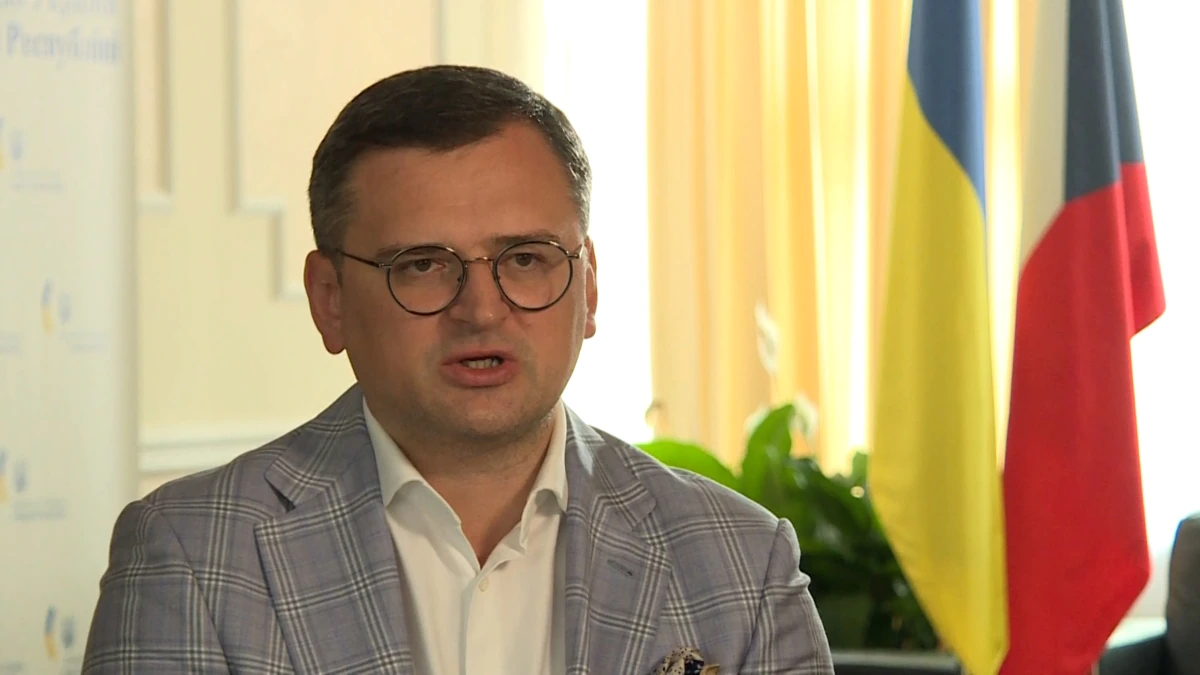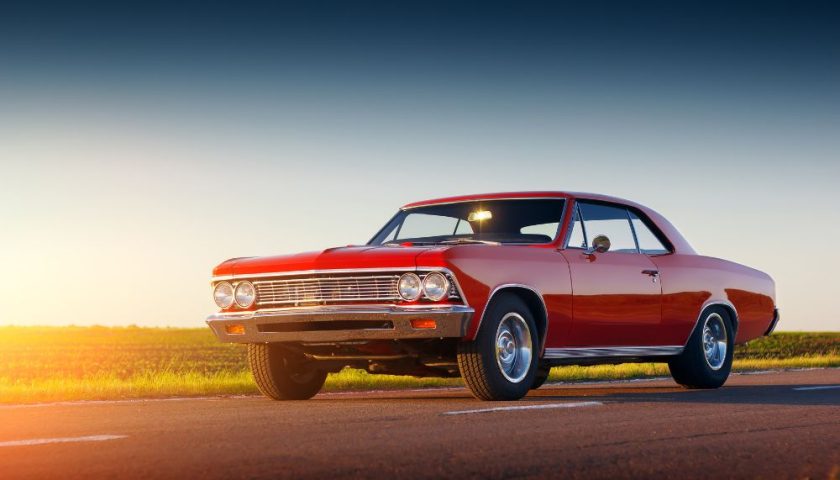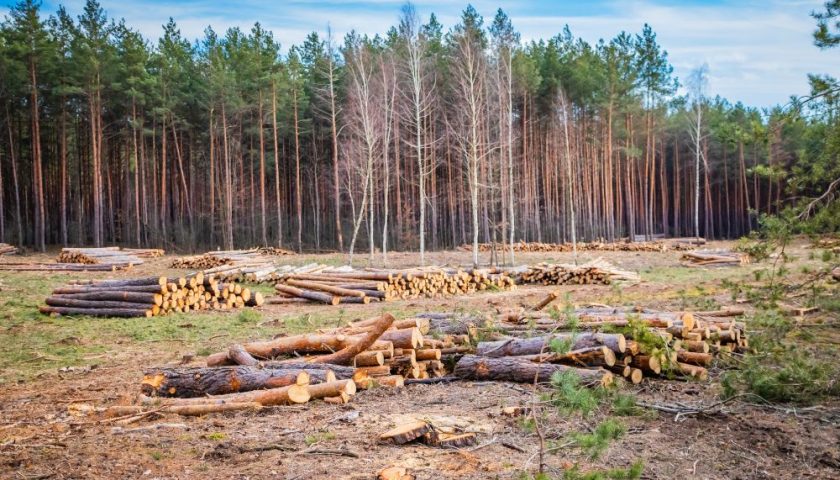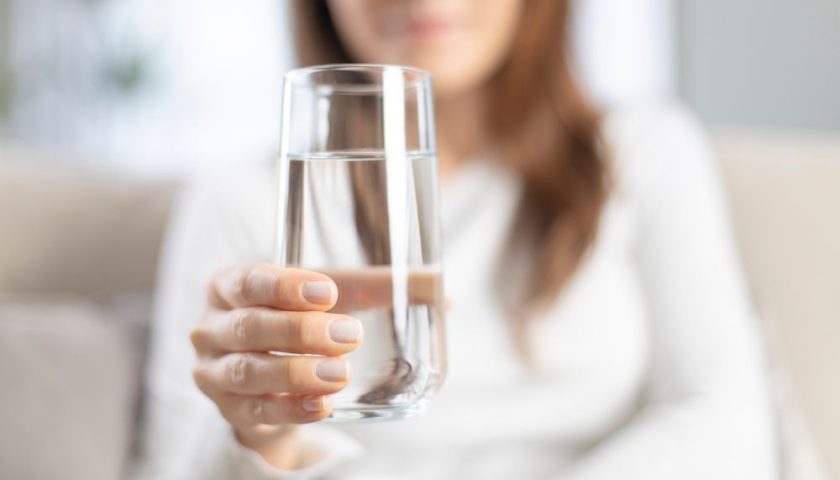PRAGUE — Ukrainian Foreign Minister Dmytro Kuleba called on the European Union to ban all Russians except political dissidents from traveling to the bloc on the grounds that Moscow’s unprovoked invasion enjoys wide support at home.
Speaking to RFE/RL’s Ukrainian Service on the sidelines of an informal meeting of EU foreign ministers in Prague on August 30, Kuleba said Europe is deluding itself if it thinks that only Russian President Vladimir Putin is to blame for the ongoing war and not wide swaths of Russian society.
“When interviewed on the streets, most Russians support Putin’s policies…so calling this war a ‘Putin problem’ and not the problem of the Russian society that mostly supports its president is self-deception,” Kuleba said.
WATCH: Ukrainian Foreign Minister Insists EU Drop ‘Illusions’ About Welcoming Russian Tourists
EU foreign and defense ministers are in the Czech capital to discuss additional punishments against Russia, including a possible blanket ban on Russian travel to the bloc, as well as ways to help Ukraine defend itself six months into the full-scale war.
The push for a visa ban has been gaining steam in recent weeks, especially among Central and Eastern European nations, but has faced pushback from some heavyweight members. The measure needs the approval of all 27 member states.
Hours before the meeting, France and Germany issued a joint paper arguing that limiting visas for Russians would be counterproductive as the EU tries to win the “hearts and minds” of those Russians who don’t support the invasion.
Kuleba said “real” Russian opponents of Putin should be allowed to visit the European Union as well as select others on “humanitarian” grounds — a possible reference to those needing medical attention abroad — but dismissed the idea that travel to the bloc will influence the views of other Russians toward Putin or the war.
Kuleba argued that since the EU simplified visa requirements for Russians in 2007, Moscow has invaded Georgia and Ukraine, assassinated political opponents in Europe, and used its gas and oil as weapons against the bloc.
“My question is: How’s that transformative impact [of eased travel to the EU] working out? Maybe they should see what’s really happening and admit that those are just illusions,” he said.
Easy travel to Europe “did not help teach Russians to respect others, other countries, and other peoples,” he said.
The EU has since February tightened visa restrictions for Russians and banned Russian plans from its airspace, significantly slashing the number of visitors from the country entering the bloc.
Yet Russians, including some officials and their relatives, are still arriving in EU states to vacation and the number of Russians seeking a visa for EU travel has surged.
Images of regime elite like Liza Peskova, the daughter of Putin spokesman Dmitry Peskov, who recently visited Greece, have fed international resentment as Ukrainian casualties and hardships mount.
Russians “must choose,” Kuleba said: “If you support Putin then stay in Russia and enjoy it; don’t use Europe for your benefit.”
He called the issue “a matter of self-respect” for Europeans, saying Putin has unleashed aggression not just against Ukraine but against the West more broadly.
“The only difference is that Putin attacks us with missiles and tanks. He attacks Europeans with energy prices, inflation, propaganda. But the goal is the same: to destroy the democratic world.”
During the 30-minute interview, Kuleba also touched on other major topics, including NATO membership, relations with Turkey, and peace talks with Russia.
He said Ukrainian President Volodymyr Zelenskiy’s administration is working with the West on finding a temporary solution to the country’s desire for a security guarantee.
Ukraine has been seeking to join NATO for years, but Washington and Brussels have repeatedly said that Kyiv is not ready and years away, something experts said was an attempt by the West to postpone a decision and avoid provoking Russia.
Kuleba said that following Russia’s invasion, it would be “indecent” if NATO again demanded Ukraine go through “some long endless process” before receiving membership in the alliance.
He said Kyiv welcomed Turkish President Recep Tayyip Erdogan’s efforts to serve as an intermediary but said his call for talks between Zelenskiy and Putin were premature.
WATCH: ‘Tourism Is Not A Fundamental Right’: Romanian Minister Backs EU Ban On Russian Tourists
“We do not share the opinion that Russia is now ready for negotiations. All Russia’s actions demonstrate that it believes in its war and is looking for a military solution to the conflict.”
Kuleba reiterated that Ukraine will not compromise its territorial integrity to end the war and rebuked outsiders for trying to pressure Kyiv to do so.
“I’m tired of their skepticism. These are all groups that never believed in Ukraine, who were advocates of semi-measures against Russia,” he said.
Kuleba described victory as a three-stage process: restoration of Ukraine’s territorial integrity, prosecution of Russian war criminals and payment of reparations, and Russia’s public repentance for its aggression against Ukraine much as Germany had done following World War II.
“I continue to believe that the day will come when a Russian leader will come to Ukraine, kneel in front of the monument to the victims of Russian aggression, and apologize to the Ukrainian people for all the evil done to us. And when this happens, it will be the final victory of Ukraine.”
Nonetheless, he said, it could take Ukraine generations to restore relations with Russia.





